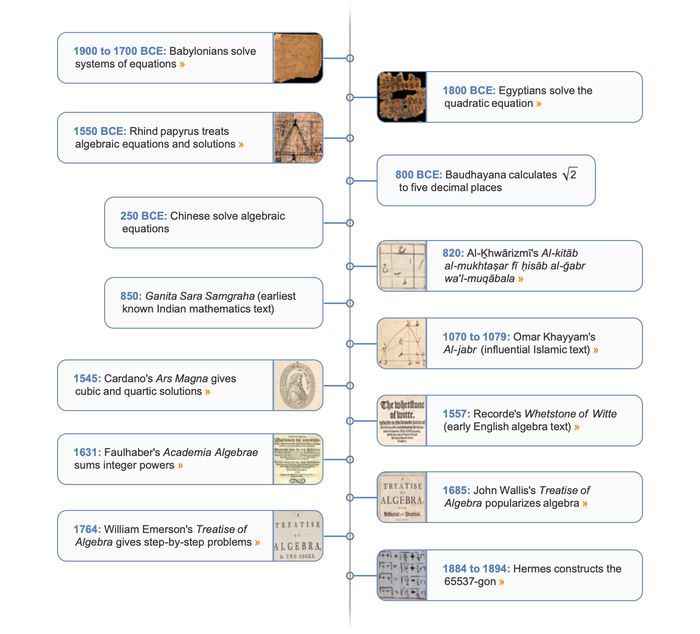Funding for this project generously provided by Overdeck Family Foundation
Algebra
Algebra is the branch of mathematics dealing with solving problems that involve mathematical symbols. The word "algebra" is derived from the Arabic word al-jabr, meaning "reunion of broken parts." The simplest forms of algebra involve linear and polynomial equations, and such problems were studied by ancient mathematicians and practitioners as long ago as 1900 BCE. Mathematicians refer to this form of algebra as "school algebra," reserving the word "algebra" for the more advanced and modern aspects of the subject involving topics such as group theory, invariant theory and cohomology.
-

around 1900–1700 BCE
Babylonian Metric Algebra Problems Tablet
Metric algebra problem texts
-

around 820
Al-Khwārizmī's Al-Jabr
Landmark work that established and named algebra
-

around 1070–1079 CE
Khayyam's Al-jabr
Exact solution procedure for cubic equations
-

1545
Cardano's Ars Magna
Algebraic solutions to cubic and quartic equations
-

1557
Recorde's Whetstone of Witte
The whetstone for exercise
-

1631
Faulhaber's Academia Algebrae
Sums of odd powers
-

1685
Wallis's Treatise of Algebra
First publication focusing on algebra
-

1764
Emerson's Treatise of Algebra
Step-by-step algebra problems
-

1884–1894
Hermes's Suitcase of Göttingen
Computing the 65537-gon
Timeline
